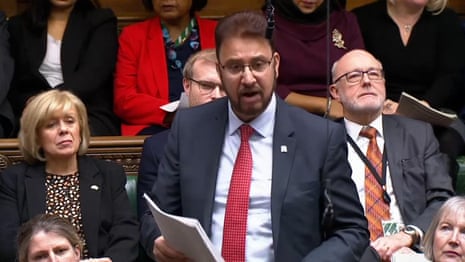There are many good reasons for Rishi Sunak to postpone a general election. All are about reducing his party’s potential loss of seats. There is also an overwhelming reason for calling one now. It is in the national interest.
British government needs an act of cleansing. It needs renewal and a fresh start under a new regime. Every month that start is delayed has a cost in decisions postponed. The presumed next government of Labour’s Keir Starmer is waiting and ready to go. Its learning curve will be steep and its climb hard. There is not the remotest national advantage in another six months of bickering and squabbling.
Affliction descends weekly on Sunak’s head. He has shown himself to be an honest and articulate prime minister during probably the toughest episode in modern British politics. But his party and his government machine have failed him. The Rwanda bill, questionable donors, bankrupt councils, tax cuts, extremism laws and defence spending tumble out of Downing Street in a chaotic shambles.
Now he must confront an alleged plot to replace him with Penny Mordaunt, the apparent favourite of Tory moderates, who several MPs claim has been “on manoeuvres” for several months. While Mordaunt herself has not commented publicly, her supporters have called the claims “bonkers” – and such a bid would indeed be destabilising, just when Sunak most needs support.
Mordaunt is currently leader of the House of Commons. She heads the central oligarchy of power in Britain, the party of government in parliament. Of all cabinet members, her duty is one of absolute loyalty to her leader. Yet she and others remain silent as Sunak trips and stumbles from one calamity to another. Parliamentary lobby journalists gaily disseminate challenges to his leadership. His enemies mostly remain anonymous and, for all we know, may not exist, while his named supporters make the most obvious remark: that a fourth leadership contest in five years would indicate a party unfit for a minute longer in government.

Throughout Conservative history, the party’s unity has been cited as its secret weapon, manifest as loyalty to the leader of the day. There have been two occasions postwar when it has been as hard-pressed as now. One was in 1964 under Alec Douglas-Home and the other in 1997 under John Major. In both cases, the leader was challenged, respectively by Enoch Powell and by the anti-EU “bastards”. But come election time, loyalty held. The party went dignified into opposition and leadership hopefuls bided their time.
There is no dignity now. Mordaunt is a modern politician who, like Liz Truss and Boris Johnson, can fill a room and please a crowd. She did not seem to merit cabinet promotion, other than briefly, over the past troublesome years, as defence secretary for 85 days. She is of the populist rather than executive stream of British politician.
This could be a strength, if she were ever to make a leadership bid, but Tory leaders including Margaret Thatcher have been careful to surround themselves with a tight cabal of ministerial talent. It was Johnson’s mass expulsion of such talent in 2019 – fearing for his position – that has left the party so denuded of leadership ability today. The deplorable state of the cabinet machine during the pandemic is the one message of the otherwise useless Covid inquiry.
As the political theorist Alexis de Tocqueville declared, every political party in Britain is essentially a club. Its ability to act in unison is its greatest strength. That is why Britain has always found it impossible to devolve real power to national or local governments. But the club demands its members obey the rules. One of the great strengths of the historical Labour party was to adapt the discipline of the trade union to parliament.
The Tories have suffered factional splits in recent decades, variously into the Referendum, Brexit, UK Independence and Reform parties. The Conservative party has survived them all, admittedly with help from the first-past-the-post system. The present challenge from Reform looks superficially serious, though its former leader, Nigel Farage, is carefully biding his time. Who knows – but his future may yet be with the Tories.
The clear possibility hovers on the horizon of a Farage-Johnson-Mordaunt “red wall” coalition. It could relaunch a “New Tory” party – on the model of Tony Blair’s New Labour – amid the putative ruins of a Starmer government. What is different today is the lack of any critical mass of respectable Toryism to offer it resistance. At the prospect of such a future we can only tremble.
Simon Jenkins is a Guardian columnist
